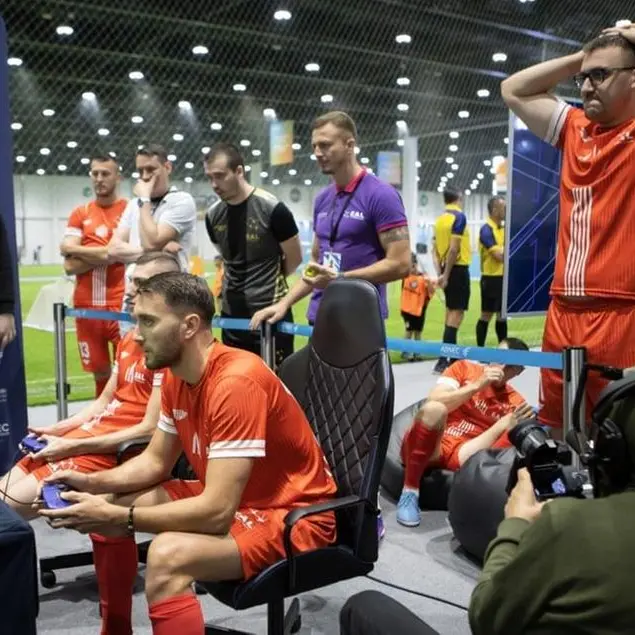PHOTO
While there’s an old saying about how the best game of rugby is one where you don’t notice the referee, that’s simply not possible in today’s game. Every televised game is covered by dozens of camera angles and, thanks to technology, amateur analysts can dissect their performance and share their analysis within hours of the final whistle.
World Rugby needs to understand that reality and do everything it can to adapt to it.
A step in the right direction
Before digging into what these improvements might look like, it’s worth pointing out that World Rugby is doing some things right. For instance, making legendary referee Nigel Owens (now retired) a regular feature in its video content is a masterstroke.
The Welshman was almost universally respected during his time as a ref and his “Whistle Watch” videos are relaxed, informative, and unafraid to tackle controversial decisions from recent games. It is unfortunate, however, that it doesn’t seem to have similar offerings in other languages (not ideal for a game that’s trying to grow in non-traditional regions).
With that in mind, how could it build on “Whistle Watch” to create a communication strategy that helps ensure that fans spend more time talking about what the ref got right than what it got wrong?
Educate
The first step is to work on education. Rugby was never a simple game and it’s only become more complex over the years. While dedicated fans might be up to date with all the laws, that doesn’t necessarily mean they understand all of them. That’s to say nothing of the casual fans who only watch a few games a year. If the latter are left bewildered by refereeing decisions, how can the game expect to draw them in to the point that they become part of the hardcore group?
Here, education has a critical role to play. One option might be to push out short “law of the week” videos across its social media channels. As Owens’ “Whistle Watch” feature shows, these clips needn’t be po-faced and serious. They could also be played on the big screens at test matches (perhaps during the build-up, at half-time, or during water breaks) and offered for free to broadcasters around the world.
Foster empathy
Providing access would also go a long way towards fostering a greater sense of empathy towards refs. In the heat of a match, it’s easy to forget that there’s a human behind the whistle. But we shouldn’t. Unless we want robots taking charge of test matches, we need to give referees respect and dignity.
There are other ways to foster empathy too. World Rugby could, for example, profile referees on its various channels, giving fans insight into their lives outside rugby. Properly moderated Ask Me Anything (AMA) sessions on social media might also help.
But there’s also scope for innovation. What about virtual reality (VR) activations at stadiums on game days that allow fans to “be the ref”? I can think of few things that would give someone an appreciation of how much a referee has to consider during a high-paced professional match than having them do it themselves. Such an exercise might have the added benefit of unearthing some previously unknown talent in much the same way as some racing SIM drivers have gone on to become professional real-world drivers.
Celebrate
This appreciation for the work refs do should be reflected in how World Rugby celebrates referees too. While the governing body’s annual awards showcase does include a World Rugby Referee Award category, there’s probably scope for a couple more.
What about awards for the “Player’s Referee of the Year” and the “Fan’s Referee of the Year”? Someone will probably tell me that there are very good reasons not to have those awards, but surely they’re worth considering.
Another way to celebrate referees is to ensure that they visibly remain within the rugby ecosystem post-retirement. We frequently see former players and coaches taking on roles as matchday pundits and commentators. Why shouldn’t the same be true of former refs? Their insights could be incredibly valuable and add to the matchday experience. If World Rugby isn’t working with broadcasters to ensure that’s the case, it should be.
Small changes matter
Look, I’m not saying any of the interventions I’ve suggested will stop fans from moaning about the referees during or after a game. But communication matters and the right plan, executed properly, could go a long way to bridging the divide between referees and fans.
All rights reserved. © 2022. Bizcommunity.com Provided by SyndiGate Media Inc. (Syndigate.info).





















